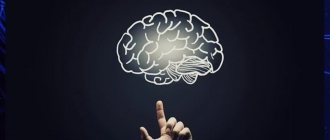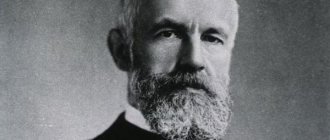Practical psychology is a branch of psychology dealing with the practical application of its knowledge. It is used in all spheres of human activity: sports, healthcare, education, production, law. It gained wide popularity thanks to the development of the Internet and the interest of many people in science itself. This resulted in the appearance of numerous works on practical psychology, which in fact had a very distant relation to it.
Subject and tasks
A practical psychologist studies mental phenomena and their patterns. He learns to manage them, develop the necessary qualities and stop pathological phenomena. The list of tasks of a practicing psychologist includes:
- Research work - studying the process of personality formation, deepening and expanding knowledge about the psyche.
- Applied work - development and application of new research methods, training programs, other types of diagnostics and correction.
- Practical work - determined in accordance with the location of activity and the type of client request.
A psychologist is required to regularly take additional educational courses and trainings and engage in self-education. Its main task can be defined as self-improvement with the aim of providing assistance within the profession.
Application
Knowledge of practical psychology is transmitted along a kind of chain: from psychology it is addressed to the psychotherapist, and from the psychotherapist (or psychoanalyst) it is transmitted to his patient. Psychotherapeutic work is an essential part of practical psychology. Thus, individual client counseling is always associated with unique personal problems that do not have a specific solution based on theoretical knowledge. That is why doctors test various techniques and their combinations, trying to understand what exactly suits a particular patient.
Other questions can be very narrow - such as issues of personal success, time management, business psychology. Others, on the contrary, affect broad layers of education or personal development.
History and followers of the direction
When researchers discovered that they could not only study psychic phenomena, but also influence them, the decision was made to combine knowledge and methods into a separate science. This is how practical psychology emerged, which took shape as an independent discipline at the beginning of the 20th century.
This branch of science quickly became popular because it could change people's lives. From the USA it spread to other countries, first European, then Asian and African countries. Its development was carried out by: Jung, Comte, and their numerous followers.
A practical psychologist working as a separate therapist initially did not evoke either approval or understanding. It was believed that for a patient to work fully, clinical conditions were necessary, but already in the 60s, the first private practices began to work in separate rooms not attached to clinics.
This format quickly became ubiquitous. Even opponents of the method were forced to admit that it works - after undergoing therapy, patients noted a significant improvement in their well-being and life situation.
Practical psychology is often confused with applied psychology, considering them synonymous concepts, but applied psychology is not a separate science, but a part of practical psychology. It combines methods for studying the patterns of the psyche, which are then used in practice. These sciences are not opposed, but complement each other.
The development of practical psychology in the USSR began in the 80s, when the exchange of experience between practitioners from different countries became possible. The greatest contribution to development was made by Druzhilov's research. Psychology is no longer just a field of study. Her achievements and discoveries were aimed at solving specific problems in education and industry. The scope of practical psychological knowledge has constantly expanded. At the same time, science was popularized among representatives of mathematics, law, and politics.
Thanks to the efforts of educators over 10 years, practical psychology has spread and become an accessible type of help.
Books on practical psychology
The topic of practical psychology is extremely broad, so if you want to study it further, check out the books on this list.
- “How to treat yourself and people, or Practical psychology for every day” Nikolai Kozlov.
- “It's in your power. How to Become Your Own Therapist by Jeanette Rainwater.
- “A book for those who like to live, or Psychology of personal growth” Nikolai Kozlov.
- "On the limit. A week without self-pity" Eric Bertrand Larssen.
- “Psychology about personality” Alexey Bodalev.
- “Games that successful people don’t play. Master class in practical psychology” Pia Bylund, Kåre Christiansen.
- “Workbook of a practical psychologist: a manual for specialists working with personnel” Alexey Bodalev.
- “Practical consulting” Galina Kolesnikova.
- “The Gift of Psychotherapy” by Irvin Yalom.
- “Textbook of Systemic Therapy and Counseling” by Arist von Schlippe.
- "The Book of Self-Power" by Tony Robbins.
- From Frogs to Princes by Richard Bandler and John Grinder.
We wish you good luck!
Did you like the article? Join our communities on social networks or our Telegram channel and don’t miss the release of new useful materials: TelegramVKontakteFacebook
We also recommend reading:
- Storytelling
- Criminal psychology
- Educational Psychology
- Social technologies
- Psycholinguistics as a tool for in-depth study of speech and language
- Psychology of Advertising
- Wundt's method of studying psychology
- Differential psychology
- Cognitive psychology and cognitive psychotherapy
- Crisis psychology
- Where to start studying psychology
Key words:1Self-knowledge
Development of the direction
The accumulation of experience has allowed therapists to provide assistance and work for the future, preventing the problem from reoccurring in the future, but the low level of understanding of the essence of psychology among ordinary people is still a problem.
According to the ideas of people far from science, psychology is a mystical practice that can realize any requirement. A common request to a therapist is to “fix” behavior problems.
Psychology doesn't work that way. During a consultation, the therapist needs to make significant efforts to understand the essence of the patient’s problem and show a creative approach. There are no ready-made templates that would work in any situation.
We cannot ignore the contribution that practitioners have already made to the formation of mass consciousness. The task of modern psychology is to popularize science among ordinary people, convey the need for diagnosis and correction.
Education
Those interested in practical psychology can get an education in this specialization. Bachelors and masters in the relevant field are prepared by both public and private higher education institutions. In addition, this direction can be additional to the main profile of training. It is on this principle that graduates are trained, for example, by the Kirov Institute of Practical Psychology.
Advantages and disadvantages of science
Psychology is sometimes considered "frivolous" compared to psychiatry. This is a wrong approach, which only reflects a complete misunderstanding of the principles of working with an individual.
Benefits of psychology:
- therapy is available to a person at any time;
- You can choose a specialist based on your preferences;
- a large selection of working methods;
- You can work out any problem.
Disadvantages include the inability to obtain drug treatment. Only a psychiatrist can select medications. Therefore, one cannot contrast these industries and assume that one is somehow worse than the other.
Issues
Theory often outpaces practice, which is why weakly substantiated assumptions and hypotheses appear in the sciences. These gaps need to be filled with something. In psychology, for practical purposes and filling gaps, so-called metaphors are used - not supported, but working techniques that are a specific part of the discipline in question.
The problem that is acutely posed to practical psychology is that the demands of the real world do not correspond to the theoretical basis. From this emerge the main tasks of this science.
Research methods
The first task a psychologist works with during a consultation is to identify the patient’s problem. To do this, he uses various diagnostic methods.
To assess the condition, several methods are used in turn:
- observation;
- conversation;
- tests.
Observation may occur in the patient's office or natural environment. During the research, records are kept, from which conclusions will subsequently be drawn.
The conversation, unlike an ordinary conversation, has a clear goal - to identify the true cause of the pathology. Not only the patient’s words are assessed, but also his posture, facial expressions, and gestures. Intonation and involuntary semantic accents are important. Often during the conversation, the patient changes the initial request, realizing that his problem is different.
Testing includes the use of questionnaires, tests, and projective techniques. Depending on the patient’s answers, personality traits are revealed: type of temperament, character traits, hidden phobias. Based on the data obtained, the optimal type of therapy is selected.
Professions
Practical psychology is a branch of knowledge that is used by representatives of the following professions:
- psychotherapist;
- coach;
- psychologist-trainer.
And if for the former, having a basic psychological education is a prerequisite, then, for example, a coach can only have an additional retraining education. This is a vivid example of how the discipline in question comes into contact with the real world and its requirements - the coach is tasked with motivating and helping the client achieve his goal. A practical and grounded task. Either it is done or it is not.
Within the framework of psychological counseling, the task of dealing directly with the patient’s problems is also stated precisely and clearly.
Connections with other sciences
The practical industry involves the use of knowledge and methods from other areas:
- behaviorism;
- psychoanalysis;
- Gestalt therapy;
- transactional analysis;
- humanistic psychology;
- body-oriented therapy.
The interaction of psychology with other sciences, in particular with biology, is also necessary. Psyche is not only an area of personal development. It cannot work without the normal functioning of the central nervous system, and biology studies it. Practical application also affects the humanities: history, philosophy, cultural studies. For full-fledged research, the use of mathematical methods is also necessary. Practical psychology combines different disciplines and finds new approaches to their application.
Psychology of Personality
Personality psychology is a branch of science that allows us to understand the essence of human nature and individuality from a psychological point of view. It is closely related to practical psychology, so it is impossible to be interested in one area without touching on the other.
For example, to better understand people, you will need to become familiar with personality traits:
Character . This is the structure of persistent, relatively permanent mental properties that determine the characteristics of relationships and behavior of an individual. However, integrity of character is not absolute and can change over time. It depends very much on temperament.
Temperament . Without understanding temperament, you cannot create a complete map of a person's personality. It forms the basis for the formation and development of character, and is also determined by the type of higher nervous activity of a person. If a person is slow, and his emotions sluggishly flow from one to another, you can be sure that he is either a phlegmatic person or a melancholic person. Of course, every person has something of each type of temperament, but one of them always predominates.
Capabilities . These are personality traits that are conditions for the successful implementation of a certain type of activity. They are not reduced to skills, abilities and knowledge, but are found in the depth, speed and strength of mastering the methods and techniques of some activity. There are physical, literary, musical, structural and technical, mathematical, educational and mental abilities.
Motivation . This is a psychophysiological process that controls human behavior, setting its direction, organization, activity and stability. If you don’t learn to motivate others, or at least yourself, it can kill any desire to develop as a person, to work, to change the world, to influence others.
All these personality traits are closely related to each other. Psychology is a very complex and developing science, so studying it is a life-long process. If you love learning, you can make it a part of your life or even a profession.
How to learn this?
Naturally, knowledge about psychology is not present in us from birth, but is formed throughout life. Some people, of course, have a predisposition to psychology. Such people often become psychologists, intuitively understand people, and look at life a little differently. Others have to specifically study psychological knowledge and put more effort and patience into mastering it. But, in any case, you can learn anything. And master the skill of applying psychological knowledge – even more so. Moreover, you can do this yourself.
There are two aspects to learning this skill - theoretical and practical.
- The theoretical aspect of psychology is the knowledge that is taught in educational institutions and is also given in the presented course;
- The practical aspect of psychology is the application of new knowledge in life, i.e. transition from theory to practice.
But it often happens that a theory remains a theory, because people simply do not know what to do with the information that they now possess. Any lessons, courses, trainings, lectures, seminars, etc. should be aimed at the practical application of knowledge in real life.
Taking this feature into account, the course, the introduction to which you are now reading, was compiled. The purpose of this course is not only to give you a good theoretical basis of psychological knowledge, but also to teach you how to use this knowledge. All course lessons have a two-way focus - theory and practice. The theoretical part contains the most important knowledge on the topic of human psychology and represents its quintessence. The practical part, in turn, consists of recommendations, advice, psychological methods and techniques designed for you to use them.
This course “Human Psychology” is:
- Systematized and understandable material for anyone, presented in a simple, interesting and accessible form.
- A collection of useful tips and tricks that are easy to put into practice from the very first day.
- The opportunity to see yourself and your life, as well as other people from a new, previously unknown side.
- The opportunity to increase the level of your intelligence, education and erudition by several levels, which undoubtedly plays a significant role in the life of a modern person.
- The opportunity to find the main motivating force that will encourage you to go forward and achieve success.
- An opportunity to grow as a person and improve the level and quality of your life.
- The opportunity to learn how to establish contact with any people (from your own children and parents to bosses and hooligans on the street).
- A way to achieve harmony and happiness.
Want to test your knowledge?
If you want to test your theoretical knowledge on the topic of the course and understand how suitable it is for you, you can take our test. For each question, only 1 option can be correct. After you select one of the options, the system automatically moves on to the next question.
Statistics Full screen
§ 1. The concept of psychological information and methods of obtaining it
What is information about a person? This can be specific knowledge about a specific person, it can be knowledge about his loved ones, about the social and economic situation surrounding him, it can be knowledge that characterizes him as a biological being, etc. All this knowledge allows us to judge gender, age, a person’s ways of thinking, his feelings and desires, his abilities to act in the world around him. The objects created and used by him also speak about a person.
There is a very interesting point of view on the origin of human history, expressed by academician B.F. Porshnev. It is based on an understanding of the material needs of a person, his need for specific objects or the properties of these objects: a sharp knife, a long spear, a capacious vessel, etc.
B.F. Porshnev claims and convincingly shows that the norm of behavior of every person in primitive society was that he gave away the results of his labor. In other words, by producing more than was necessary to restore the energy spent on production, a person sought to treat and give gifts to others. As noted by B.F. Porshnev, “at the dawn of history, only obstacles of a clan, tribal, ethnocultural nature stopped “wastefulness” within a local framework and thereby prevented the ruin of a given primitive community or group of people”4.
“Giving” is the norm of relationships in primitive society, it is a form of influencing another person with the help of a product extracted from the natural environment, a means of providing life’s benefits.
This product - food, tools, clothing - served as a regulator of human relations, since it carried a special kind of influence of a person on a person, in which the individuality of each of them is manifested. It might look like a monologue like this:
-I have a sharp stone. You do not have. I don't need it, take it for yourself. Or maybe like this:
-Take the nut.
- I'll take it. Nice nut. And you take my banana.
Here objects perform their suggestive function, that is, regulating people’s relationships with the help of the functions of objects known to them. A sharp stone, a nut, and a banana not only fell into a person’s field of perception, but they created a corresponding relationship that can be transmitted through this object to another person. In the first monologue, this is a relationship of interest-disinterest in the subject; in the second dialogue, this is a relationship of mutual affection, manifested through the exchange of products. A person himself can show an attitude towards an object, see in it the needs of other people in the qualities of the object - in its taste or sharpness, as in our examples, but this is possible, according to B.F. Porshnev, only because earlier this attitude was shown to the object and its properties by other people. The same qualities of a sharp stone or a tasty nut determined his relationship with another person, only later it becomes his individual attitude, which will be used as an influence on another person.
This is the well-known law of the development of higher mental functions, formulated by L.S. Vygotsky, who says that each mental function was previously divided between people, and then became a way of self-organization of one person.
As B.F. wrote Having pistoned, the human body began to perform actions not dictated by its own sensory sphere. Man began to focus on the meaning of the objects he produced, on the meaning that included human relationships, regulated them, created them.
In order to set a limit to the desire of primitive man to give and donate what he produced, society created special norms to regulate the limits of donation. This led to the emergence of many human communities, isolated from each other according to various, even random, characteristics. General norms for regulating the process of giving away produced goods united them and at the same time limited them from other communities. These general norms were recorded in a common language for the community of people, which performed the main function of influencing another person.
It is not without reason that many linguists suggest that verbs are older than nouns, while verbs were first motivating, imperative, influencing directly human action.










